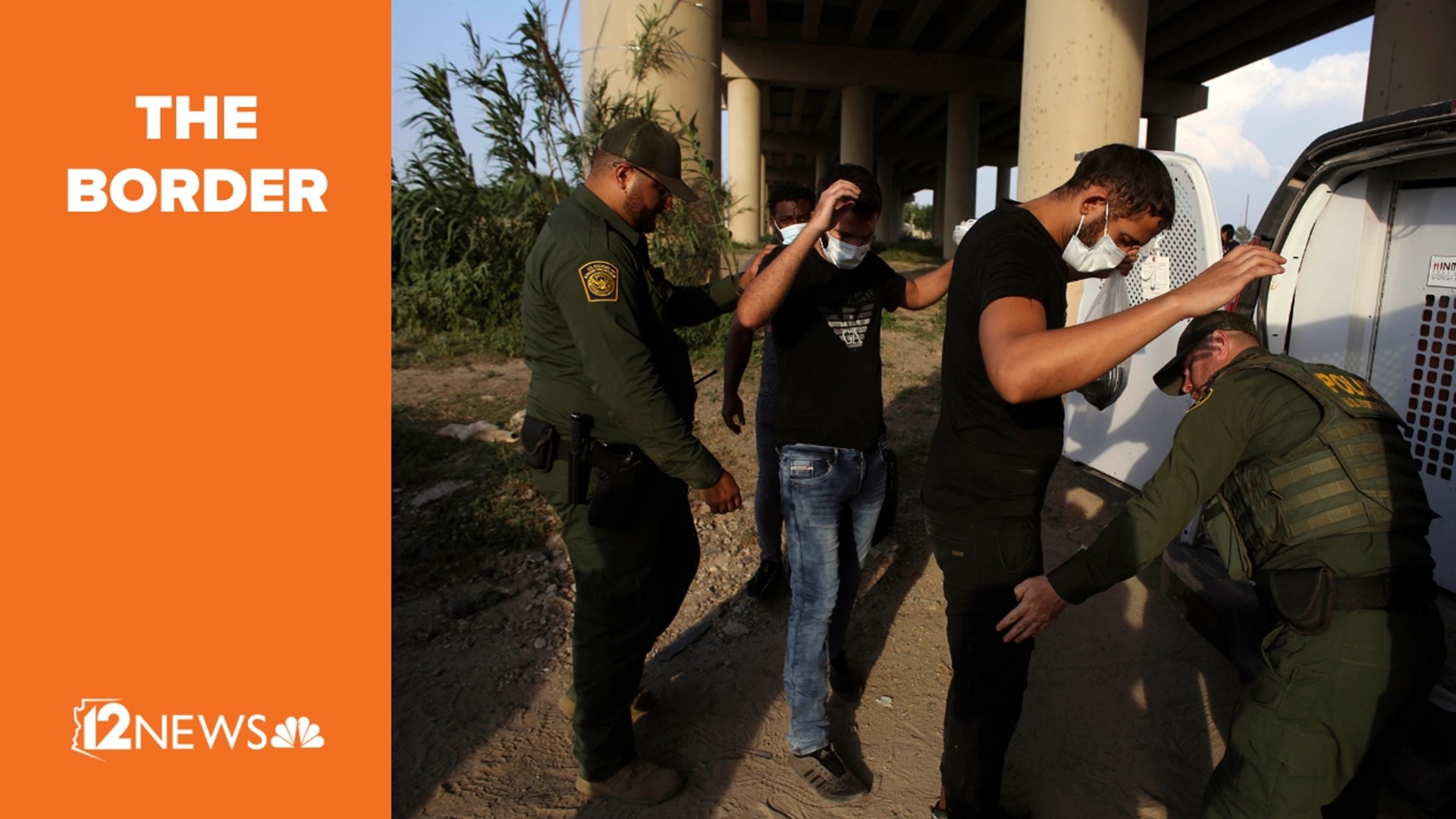ARIZONA, USA — The U.S. Supreme Court cleared the way for the Biden Administration to end the Trump-Era "Remain in Mexico" policy.
It's a policy that affected 75,000 migrants, according to the International Rescue Committee
What this means for Arizona
The "Remain in Mexico" policy or Migrant Protection Protocols (MPP) requires some asylum seekers to wait in Mexico as U.S. Immigration Courts process their cases.
In the 5-4 decision, the Supreme Court said the Biden Administration can now end the policy that took effect in 2019.
"It was a policy that really created a lot of extra paperwork, extra processing. That was very difficult for all sides involved," Beth Strano, the Asylum Seekers and Families Engagement Manager for the International Rescue Committee in Phoenix said.
Strano said she expects the Biden Administration to end the policy following the high court's decision.
However, even under the Trump Administration, Strano said the protocols weren't really implemented in Arizona given the geographical differences of the state compared to other border states.
Arizona's desert, Strano said, is much different than other states where rivers or other geographical barriers force people to go cross in specific areas.
"For the reinstatement, it had not been rolled out in Arizona. So the good news, too, is that this does not mean any changes at all, for the Arizona border," Strano said.
Advocate concerned for what this means in Mexico
Gilberto Gonzalo Pacheco Aguilar sees it differently south of the border in Mexicali.
"The truth is that people keep coming," Pacheco Aguilar said.
Pacheco Aguilar is a legal representative for Grupo de Ayuda para el Migrane de Mexicali.
He believes crime will get worse in Mexico with cartels who take advantage of migrants getting paid to smuggle them across the border.
"What this is doing is putting money in the pockets of organized crime, I can’t call it a different way. The organized crime is waiting for this to happen and then they’ll keep benefiting off people in need who are arriving to the Mexico-US border," Pacheco Aguilar said.
Since the policy went into effect, Pacheco Aguilar said the number of people coming to the border hasn't really changed, but where they come from has changed.
"The only time we’ve seen a decrease was with the pandemic," Pacheco Aguilar said.
What's next
Strano believes Title 42 should be the next policy to end so asylum seekers can go through ports of entry and be processed instead of being immediately turned away.
"Title 42 has actually created a bigger backlog and made it harder for people to get through and so there's just bigger and bigger numbers," Strano said.
The Biden Administration tried to end that, but courts have continued to block it.
Immigration attorney Ray Ybarra Maldonado said Thursday's Supreme Court ruling could affect Title 42.
"I do think this decision directly impacts that case that we can expect a new ruling in that in the very near future," Ybarra Maldonado said.
Up to Speed
Catch up on the latest news and stories on the 12 News YouTube channel. Subscribe today.

